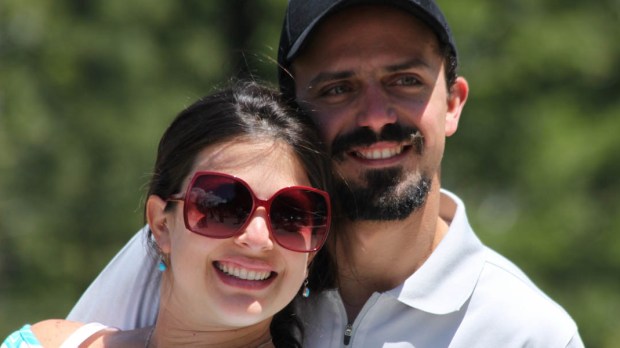What does the Church say about Catholics marrying non-Catholics? I am Catholic and my fiancée is Evangelical. I’d also like to get married in a Catholic Church.
Because the sacrament of marriage establishes between man and woman a “partnership of the whole of life” (Catechism of the Catholic Church, 1601), Christian spouses would ideally share the same religious conviction and practice, so that the partnership of their marriage might be as complete as possible.
As we know, however, men and women can fall in love and wish to marry for a variety of reasons, even when religious faith or practice is not something that they share.
While the Church acknowledges that the “difference of confession between the spouses does not constitute an insurmountable obstacle for marriage,” her pastors counsel nonetheless that “the difficulties of mixed marriages not be underestimated.” Many Protestant pastors also give this counsel.
For her part, the Church desires that couples not experience the “tragedy of Christian disunity in the heart of their own home,” which can become a “source of tension in marriage, especially as regards the education of children”(1634).
For this reason, the Church obliges the Catholic party wishing to enter into either a mixed marriage (Catholic and non-Catholic Christian) or an interfaith marriage (Catholic and non-Christian) to obtain special permission from his or her bishop. This permission is usually granted on the condition that the Catholic party will not be pressured into abandoning the Catholic faith, and that he or she will remain free to fulfill the duties of a Catholic parent, which includes raising the children in the faith. For the Catholic party to receive this permission, the non-Catholic party must agree to these terms.
The reason that the Church takes extra care in these instances is because, ultimately, the Church wants to safeguard the souls in her care. So while the Church allows for mixed marriages, she also wants to make sure that Catholics are protected from any misunderstandings or from false or even unjust expectations by non-Catholic spouses. The marriage preparation phase before your nuptials is going to be essential for working through these questions with your fiancée.
The Church does not require your fiancée to convert to Catholicism, but it wouldn’t hurt her to have a deeper understanding of her future husband’s faith. I recommend she attend Mass with you regularly, if she’s not already doing so, and for her to check out your parish RCIA program or other adult education program to get some basic instruction in the catechism.
As for getting married in a Catholic church, there shouldn’t be any reason that you can’t, provided that you’ve received the required permissions. Your pastor will help you with this. Because marriage is one of the seven sacraments, and a marriage celebrated by two baptized Christians is a sacramental marriage, it stands to reason that the most natural place for your wedding to take place is in a church. Of course, this brings up the question of intercommunion between Catholics and non-Catholics, which the Church does not practice. This can be a sensitive issue for some couples. Again, your pastor can help you work through the issue in an intelligent and sensitive way.

